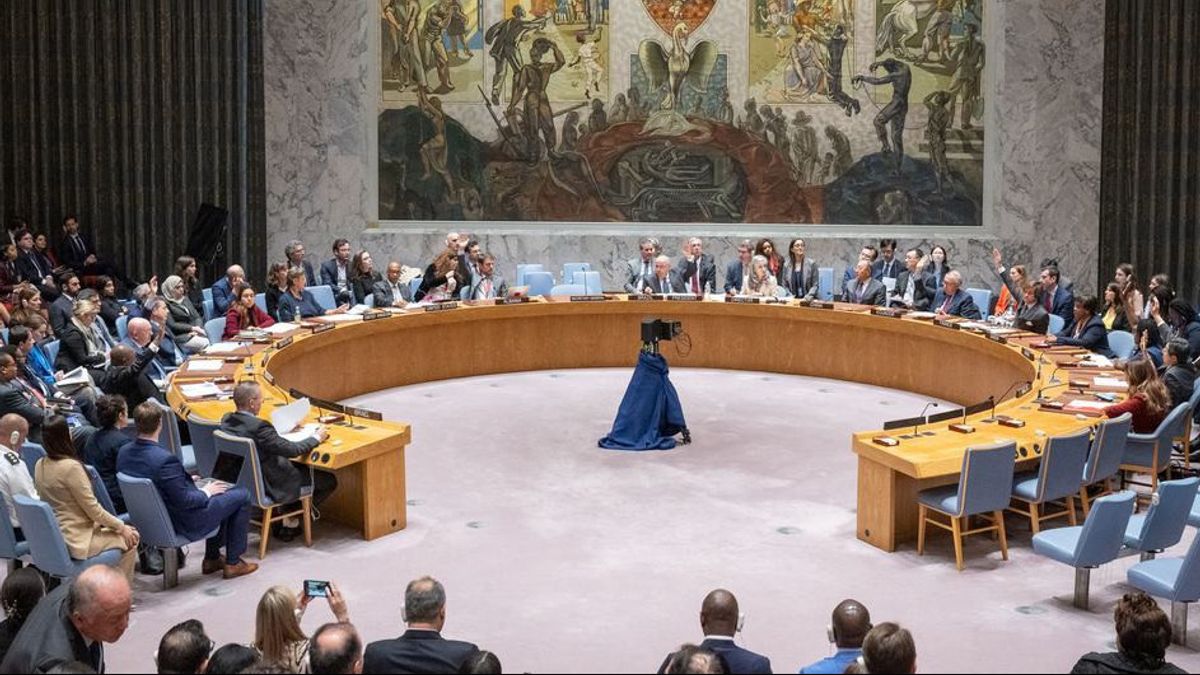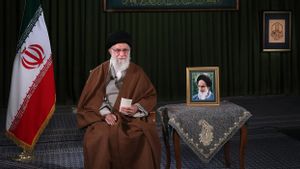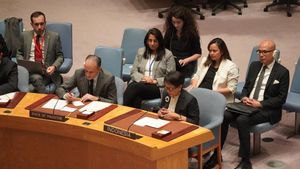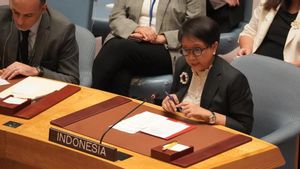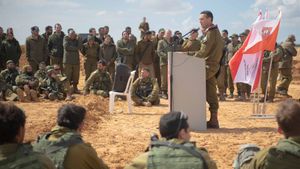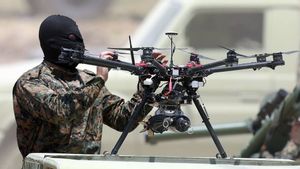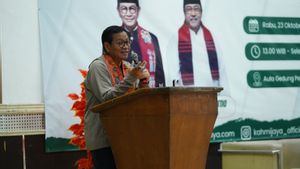JAKARTA - The United Nations Security Council (UNSC) has again failed to produce a resolution regarding the crisis occurring in the Gaza Strip, Palestine, when the death toll due to the Hamas conflict with Israel in the area reached 6,500 people.
The first resolution that failed was the United States' proposal, regarding support for Israel in self-defense.
However, this proposal failed after receiving vetoes from Russia and China as permanent members of the council, as well as the United Arab Emirates (UAE) which expressed opposition.
This month's UNSC President, Brazil, together with Mozambique chose to abstain. Meanwhile, Britain, Switzerland, Malta, Japan, Ghana, Gabon, France, Ecuador and Albania voted in favor of the United States.
"We do hear all of you. Although today's vote is a setback, we must not be discouraged," US Ambassador to the UN Linda Thomas-Greenfield told the 15-member council after the double veto, which she said was disappointing, quoted by Reuters, October 26.
Russia, China veto US-led Security Council resolution calling for “humanitarian pauses” and safe passage of relief into Gaza
For: 10 (Albania, France, Ecuador, Gabon, Ghana, Japan, Malta, Switzerland, UK, US)
Against: 3 (Russia, China, UAE)
Abstain: 2 (Brazil , Mozambique) pic.twitter.com/FF74Elpcrs
— UN News (@UN_News_Centre) October 25, 2023
Meanwhile, China's UN Ambassador Zhang Jun said they were using veto power against Washington's proposed resolution, "based on facts, based on law, based on conscience, based on justice".
He said the US draft resolution lacked the strong call needed for a ceasefire. According to him, the ceasefire is not just a diplomatic term, but a matter of life and death for many civilians.
"We are irresponsible if we take an ambiguous stance on the issue of war and peace," he said, emphasizing that Beijing does not turn a blind eye to the suffering of Gazans, quoted from the UN website.
He added that the US text did not mention the root causes of the crisis in Gaza, without referring to the Israeli blockade or evacuation orders for civilians to move south. If the US effort is carried out, it will completely end the possibility of a long-term two-state solution to the Israeli-Palestinian conflict.
Meanwhile, the next draft resolution that failed to be agreed upon was Russia's proposal, relating to calls for a ceasefire to provide an opportunity for the distribution of humanitarian aid, as well as the withdrawal of Israeli orders regarding the evacuation of residents in Gaza.
This is the second time Russia has proposed a resolution. However, this draft only received support from Russia, China, the UAE and Gabon. The United States and Britain said they refused, while nine other council members abstained.
Russia's UN Ambassador Vassily Nebenzya said it was "regrettable" that in the two weeks since the crisis began, the Security Council had not been able to send a collective signal to defuse the situation.
"Bloodshed is ongoing, the number of civilian casualties is now in the thousands (and) millions have been displaced," he said, urging "to think hard about these shocking figures."
He recalled an earlier Russian proposal, a depoliticized resolution that called for a humanitarian ceasefire, but was not supported by most Council members.
"Ideological and political interests of a national and selfish nature take precedence over the goal of stopping a humanitarian catastrophe," he criticized, noting also the US veto of the Brazil-led resolution last week.
Security Council fails to adopt Russia-led resolution urging “humanitarian ceasefire” & unhindered aid into Gaza; insufficient Yes votes
For: 4 (China, Gabon, Russia, UAE)
Against: 2 (UK,US)
Abst.: 9 (Albania, Brazil,Ecuador, France, Ghana, Japan, Malta, Mozambique, Switzerland) pic.twitter.com/p1lMoY80hy
— UN News (@UN_News_Centre) October 25, 2023
As of Wednesday, the Palestinian Ministry of Health said the death toll from Israeli attacks on Gaza reached 6,546.
"The fatalities included 2,704 children, 1,584 women and 364 elderly people," ministry spokesman Ashraf al-Qudra said at a news conference in Gaza City, citing Anadolu.
He added that 17,439 other people were injured in the attack, while 1,600 people were still trapped under the rubble, including 900 children.
UN DK is known to have held twice the vote on a draft resolution related to the conflict in Gaza last week. In Monday's vote, Russia's resolution called for a ceasefire immediately, not long and thoroughly, and stopped attacks on civilians, ran aground because it was only supported by China, the United Arab Emirates, Gabon and Mozambique. Meanwhile, the United States, Britain, France and Japan refused. Albania, Brazil, Ecuador, Ghana, Malta, Switzerland and Ecuador chose abstain.
In Wednesday's vote, Brazil's resolution to calls for a humanitarian break to provide assistance to millions of people in Gaza, ran aground after receiving veto from the United States. Indeed, the draft resolution has received the support of the majority of UN DK members (Albania, Brazil, China, Ecuador, France, Gabon, Ghana, Japan, Malta, Mozambique, Switzerland and the UAE). Russia and Britain chose abstain.
It is known that the UN DK resolution voting mechanism requires at least nine votes to support, out of a total of 15 members of the council, without a veto from one of the permanent members of the council, namely the United States, China, Britain, France and Russia. This month, Brazil served as President of the UN DK.
VOIR éGALEMENT:
After the Security Council failed to produce a resolution, it is planned that the 193-member UN General Assembly will vote on Friday regarding a draft resolution submitted by Arab countries calling for a ceasefire.
No country has veto rights in the General Assembly. Resolution is not binding like in the Security Council, but has political weight.
The English, Chinese, Japanese, Arabic, and French versions are automatically generated by the AI. So there may still be inaccuracies in translating, please always see Indonesian as our main language. (system supported by DigitalSiber.id)
